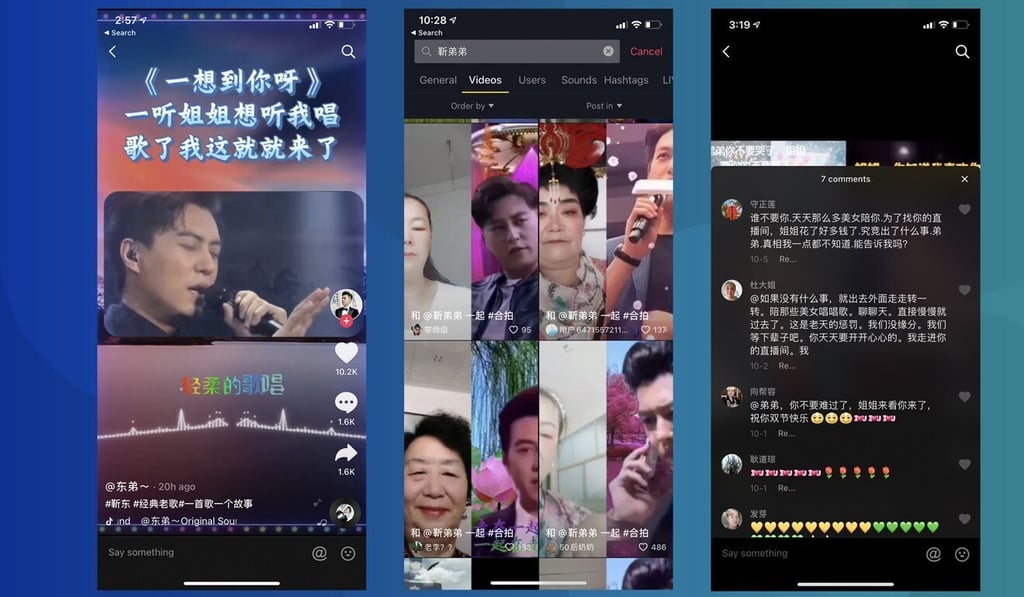Older women on China’s TikTok are being scammed by flirtatious fake celebrities, highlighting a prevalent problem on the platform
- A woman in her 60s went viral online after falling for a fake account of a TV star, believing the celebrity was in love with her
- China’s elderly population is quickly moving online, but many have proven vulnerable to scams and misinformation

When a 61-year-old woman in the southeastern province of Jiangxi found out she was being followed by TV star Jin Dong on Douyin, the Chinese version of TikTok, she was elated. The woman was convinced that the 43-year-old actor was in love with her and she was ready to leave her family.
There was just one problem: she was not interacting with the real Jin Dong.
The story of the woman, who used the pseudonym Huang Yue on a local news programme, went viral online earlier this month. Huang had been watching videos of Jin on Douyin constantly for months, believing the actor sent the videos directly to her.
“Why would he lie to me? That’s impossible,” Huang said on the programme from Jiangxi TV. “The whole country knows. Everybody who uses Douyin knows [that he loves me].”
Short video apps are an internet staple in China, where hundreds of millions of people flip through endless video streams every day on Douyin, the Chinese version of TikTok.
As Huang’s story shows, these users are no longer just tech-savvy youngsters. The app is also increasingly attractive to China’s elderly population, opening the doors to a unique but now prevalent scam involving celebrity impersonators.
